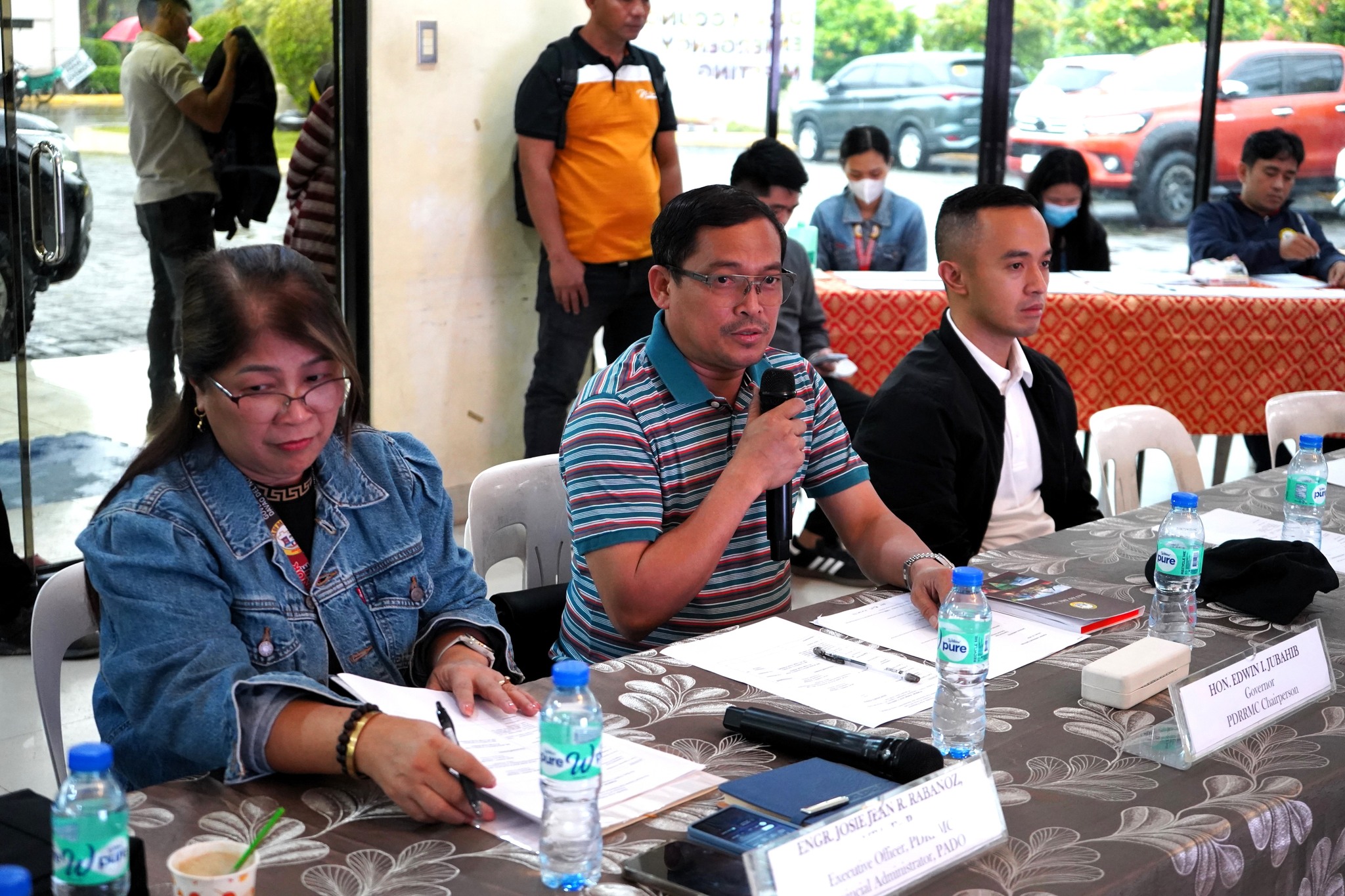Major flooding in six towns and two cities in Davao del Norte prompted the Provincial Disaster Risk Reduction Management Council (PDRRMC) to recommend placing the whole province under a State of Calamity.
Widespread flash floods in 79 barangays affected 47,376 families or 244,981 individuals as of 8:00 PM of January 17, 2024, due to intermittent rains cause by the shear line weather system across Mindanao.
Flood-hit areas include the cities of Tagum and Panabo City and the municipalities of Asuncion, B.E. Dujali, Carmen, Kapalong, New Corella, and Santo Tomas. Landslides were also reported in the towns of Talaingod and San Isidro.
Governor Edwin Jubahib said the PDRRMC is recommending the declaration of a State of Calamity in the province for the approval of the Sangguniang Panlalawigan (SP) to hasten Capitol’s relief, recovery and rehabilitation efforts.
“Kini para mahimong legal ang atong paggamit sa atong calamity funds para sa mga ayuda alang sa atong mga kaigsoonang biktima sa kalamidad ug sa pag-rehabilitate sa atong damaged agriculture ug infrastructures,” he told members of the media after the PDRRMC Meeting on January 18, 2024.
Jubahib bared the province still has unused calamity fund in the amount of P129.98, intended to help affected families back on their feet and in building the resilience of communities.
Four LGUs already declared a state of calamity, to include the towns of B.E. Dujali, Carmen, Asuncion and Tagum City.
The Council also approved a resolution extending the payment of due real property taxes without penalty until June 30, 2024 to ensure the quick and efficient recovery of calamity victims.
The floods wreaked an initial damage to 480.2 hectares of farmlands worth over P11 million that affected over 500 farmers.
Jubahib led the relief distribution yesterday in flooded areas of Tagum City, as Capitol personnel intensified relief operations in other inundated barangays.
The governor also ordered the setting up of an emergency relied camp at the Davao del Norte Sports and Tourism Center to provide free hot meals, health check-up, medicines, psychosocial care and other interventions to affected families.
Writer: Noel P. Baguio



